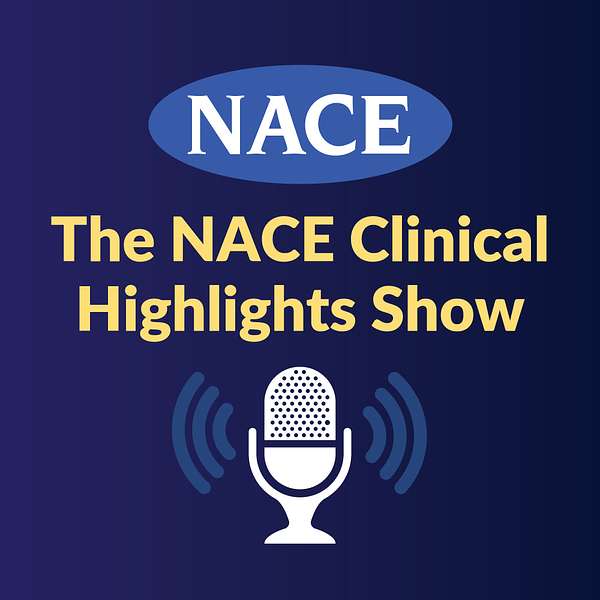
The NACE Clinical Highlights Show
Engage with expert NACE faculty for discussions about current clinical strategies for common and rare health conditions that you can use in clinical practice immediately, and that work for you and your patients.
The NACE Clinical Highlights Show
CME/CE Podcast: Battling The Blues!
For more information regarding this CME/CE activity and to complete the CME/CE requirements and claim credit for this activity, visit:
https://www.mycme.com/courses/identifying-and-managing-treatment-resistant-depression-9471
Summary
“Difficult-to-Treat” Depression (DTD) also referred as “treatment-resistant depression” (TRD) are two terms used interchangeably but with distinct implications for therapeutic decisions and treatment strategies. In addition to focusing on symptom control, interventions for difficult-to-treat depression (DTD) should also address other factors, such as managing psychiatric and medical comorbidities, however, erroneous diagnosis and lack of treatment adherence had led to a variety of DTD outcomes.
In this PsychTalk podcast/webcast episode, Dr. Gregory Mattingly and Dr. Vladimir Maletic discuss the evolving neurologic basis of depression and empower clinicians with convergent evidence about the pathophysiology and appropriate treatment options of “difficult-to-treat depression” (DTD) and “treatment-resistant-depression” (TRD) to inform therapeutic decisions.
This podcast/webcast was recorded and is being used with permission of the presenters.
Learning Objectives
Upon completion of this activity, learners should be able to:
- Review the evolving genetic and neurologic basis of depression
- Distinguish between “difficult-to-treat” and “treatment-resistant” depression to inform therapeutic decisions, and appropriate treatment options
This activity is accredited for CME/CE Credit
This activity has been planned and implemented in accordance with the accreditation requirements and policies of the Accreditation Council for Continuing Medical Education (ACCME) through the joint providership of the National Association for Continuing Education (NACE) and GlobalHealthXchange. NACE is accredited by the ACCME to provide continuing medical education for physicians.
The National Association for Continuing Education designates this enduring material for a maximum of 0.50 AMA PRA Category 1 Credits™. Physicians should claim only the credit commensurate with the extent of their participation in the activity.
This activity has been planned and implemented in accordance with the Accreditation Standards of the American Association of Nurse Practitioners® (AANP) through the joint providership of the National Association for Continuing Education (NACE) and GlobalHealthXchange. NACE is accredited by the AANP as an approved provider of nurse practitioner continuing education. Provider number 121222. This activity is approved for 0.50 contact hours (which does includes 0.25 hours of pharmacology).
For additional information about the accreditation of this program, contact NACE at info@naceonline.com.
Summary of Individual Disclosures
Please review faculty and planner disclosures here.
Disclosure of Commercial Support
This educational activity is not commercially supported.
Please visit http://naceonline.com to engage in more live and on demand CME/CE content.